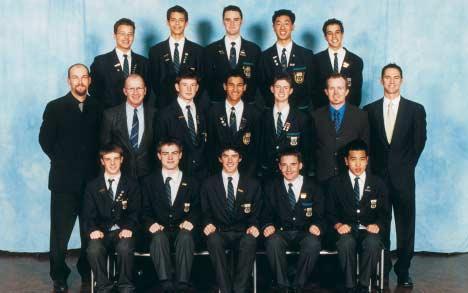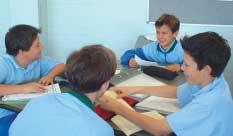
3 minute read
English and Debating
Academic
Frameworks education is the focus of our English Curriculum and its main thrust continues to be developing literacy and research skills to empower our students to learn independently. This year our department has continued to expose the students to a wide range of reading and viewing materials which are deliberately chosen with boys’ education and interests in mind. Our integrated learning units cover such broad topics as; ‘Growing Up’, ‘Self and Society’, ‘Cultural Identity’, ‘Gender and Masculinity’ to name a few. We study such texts as Boy by Roald Dahl and Boy Overboard, by Morris Gleitzman in Year 8 and in the senior school novels like Heart of Darkness by Joseph Conrad and Of Mice and Men by John Steinbeck. In English we also study non-print texts, which, like print texts, are cultural artefacts and tell us much about the times the texts were written and the values and attitudes which society shared at the time. Often people think that when we speak of Literacy we are talking about learning to read, write and speak with confidence and clarity but in fact there are three areas of literacy. Technical literacy, which the students are very familiar with given the amount of time spent in front of their computers; functional literacy, the skills required when reading, comprehending, writing and spelling; finally, critical literacy is the ability to read “between the lines”. Students learn skills which help them deconstruct texts from a range of sources and understand how the
text positions us as readers or viewers to consider certain attitudes and values. They are able to identify the techniques which have been used by the author in construction of those texts. It is in the area of critical literacy where those of us who don’t engage in reading very often have the greatest problems with comprehension of texts. Because of this the English department pushes the idea of reading personal novels and expository texts for pleasure. Mr John Geekie There is much talk in educational circles regarding theHead of English deterioration of literacy skills in children, especially boys. You don’t have to be Einstein to work out that since the advent of television and personal computers the idea of sitting down and opening a book to read for pleasure is not considered very engaging by young people. In fact the whole notion of what literacy is has had a major paradigm shift. We continue to place a high priority on interactive classrooms where there is ready access to technologies. In Year 8 and Year 9 the students have several units in the ICT (Information Communication Technology) labs which focus on the continuing development of their ICT skills. This year we again entered twelve teams in the Western Australian Debating Competition. The boys debated such diverse topics as; ‘We should cancel the Australian Day skyworks’ to ‘The playstation has destroyed the playground.’ I would like to thank all the parents for their support in our debating season and also the teachers who coached the boys for their debates. Unfortunately this year none of our teams reached the final rounds.
John Geekie
Head of English
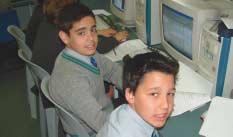
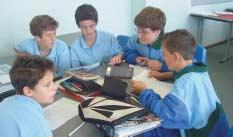
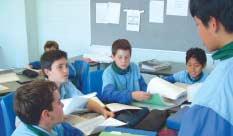
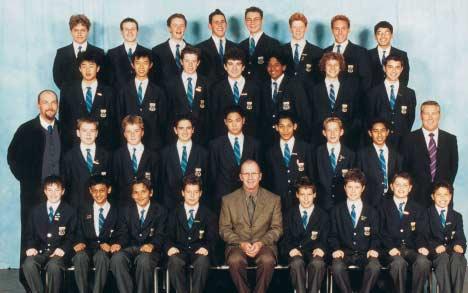
JUNIOR DEBATING TEAM
Back row: Dorian Wenzel, Stephen Dale, Rowan Carville, Danny Coyne, Brendan Brbich, Brendan Murray, Perry Joyce, Dylan Misso Third row: Justin Soon, Xuan Ji, Joshua Hicks, Liam Blackford, Binuk Kodituwakku, Jamie Gotti, Timothy Caldera Second row:Mr Tim Redden, Christopher Dawson, Hugo Seymour, Elliot Sawiris, Anthony Hermawan, Craig D’Mello, Jay Colton, Aaron Shepherdson,
Mr Robert Armitage
Front row: Benjamin Tomasi, Gerard Rosario, Lars-Nila Corbett, Xavier Leenders, Mr John Geekie, Thomas Leenders, Daniel Matthys, Mitchell Mollison, John Robert Gallagher
Absent: Mrs Rosemary Horton Academic
